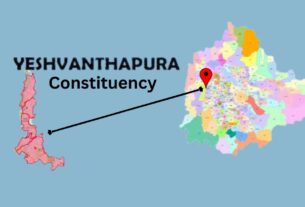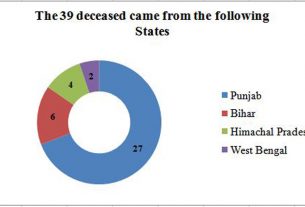While the contest between traditional foes like Azerbaijan and Armenia is expected to pick up momentum in the run up to the contest, tensions are simmering in Cyprus over the representative’s Albanian roots.
Bangalore, April 13, 2018: Europe’s largest and most awaited music contest, Eurovision, has already started running into political tensions in the already divided Eastern European region.
The 63rd edition of the music contest, which is set to be held in the Portuguese capital of Lisbon, has stirred up a controversy in Cyprus over the country’s representative’s Albanian roots.
Eleni Foureira is set to be Cyprus’ face in Lisbon. However, reactions in the country took a wrong turn over the singer’s Albanian roots. Another singer, who has proven affiliations to Cyprus’ right-wing, Eua Kyriakou said, “It would be better if she represented Albania because she was born there.”
This statement, which was branded racist by onlookers, was severely condemned in Albania’s neighbor Greece. Greece and Albania share supremely healthy bilateral relations and enjoy cooperation extensively along with cultural and linguistic similarities. Apart from being the largest investor in Albania, a sizeable Greek community and Albanian community reside in Albania and Greece, respectively.
However, Kryiakou’s comment divided Eurovision fans, considerably. Martin Pacemski-Jones, a resident of London and a member of Facebook’s 5,686 member-strong The Balkans group said, “This is small news in Eurovision. We know Eurovision is highly politicised. That a certain country has lobbied against and won’t vote for a certain neighboring country that apparently has a stolen name. That 500 years of hate still exists, and then two countries speaking the same language always give 12 points to each other.”
Amalia Stefan, a resident of the Albanian capital, Tirana slammed Kryiakou and said, “She (Eua Kryiakou) reached the nationals in 2015 to represent Cyprus in the Eurovision, however, she did not make it. The lady is quite crazy. Also, you must go listen to some of her music and just ask yourself if anyone in Cyprus or elsewhere on earth would let that thing in the finals.”
While some members of the Albanian community supported the statements by Kyriakou, most of the community had not heard about the singer previously, at all. But, members from other Balkan communities questioned the intent of Kyriakou’s statements. Arton Kukaj, another member of the Balkans group said, “This is literally the first I have heard of her. If the girl says she is a Cypriot, then what’s the problem? Yes, I get it. Right wing nationalists hate immigrants and think they’re responsible for all the crime that happens to them.” While the controversy did not stop at this, there were questions raised on Kyriakou’s statement being branded as racist, too. Mustafa Oğuzhan Kutlaca, a resident of Turkey’s Ankara said, “I don’t think saying ‘An Albanian should sing for Albania’ is racism. Why were people so hard on her for saying that?” Responses to this statement ranged from Albania potentially refusing to accept the singer as their representative because of her Greek surname and the need to read between the lines over how Cyprus would not want her to represent but rather Albania, itself.
This is not the first time that Eurovision has had ‘identity politics’ at the forefront. There have been numerous instances of countries being represented by natives of other countries. Martin added, “There are many countries that have people from a different country singing. UK won with an Australian. Latvia sent a guy from Sheffield once. Norway won with a Russian guy on his violin. Last year, the Serbian, Macedonian and Bulgarian entries were all written by the same teams. In 2014, Greece sent an entry with two guys from North London representing them. Does it really matter? Most of the entries are now sung in English anyway. If it’s a good song, that is the only thing that matters.”
The Eurovision is scheduled to be held from May 08 to May 12 in Lisbon’s Altice Arena with 43 countries participating including Russia, which had chosen to not participate in the previous edition.




